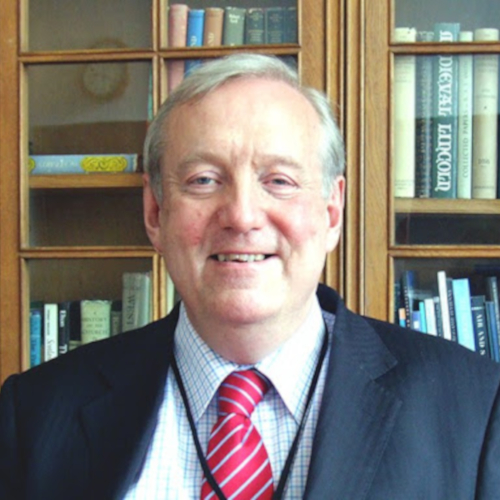
Dr Paul Ayris
UCL (University College London)
Paul Ayris ![]() graduated from Selwyn College, Cambridge, in 1978 with a 1st class degree in Theology and Religious Studies, obtaining a Ph.D. in 1984. He worked in Cambridge University Library (1984-97), becoming Head of IT Services. In 1997 he moved to UCL (University College London), and is now Pro-Vice Provost (LCCOS), responsible for libraries, museums, galleries, theatres and Open Science. In 2015, Dr Ayris founded UCL Press, the UK’s first fully-OA University Press. He also established the UCL Office for Open Science, the UCL Research Institute for Collections, and UCL Press Play. He was President of LIBER (Association of European Research Libraries) (2010-2014); and Chair of the LERU INFO Group, League of European Research Universities (2011-21). He is now chair of the LERU Open Science Ambassadors (2025-).
graduated from Selwyn College, Cambridge, in 1978 with a 1st class degree in Theology and Religious Studies, obtaining a Ph.D. in 1984. He worked in Cambridge University Library (1984-97), becoming Head of IT Services. In 1997 he moved to UCL (University College London), and is now Pro-Vice Provost (LCCOS), responsible for libraries, museums, galleries, theatres and Open Science. In 2015, Dr Ayris founded UCL Press, the UK’s first fully-OA University Press. He also established the UCL Office for Open Science, the UCL Research Institute for Collections, and UCL Press Play. He was President of LIBER (Association of European Research Libraries) (2010-2014); and Chair of the LERU INFO Group, League of European Research Universities (2011-21). He is now chair of the LERU Open Science Ambassadors (2025-).
All Sessions by Dr Paul Ayris
The future of Open Access beyond Transitional Agreements
The move to Open Science in society is not a single event, but a whole journey. In Europe, Open Science has become an influential movement in universities, with a range of solutions being implemented – new publishing models with Open and FAIR data among them. Transition to an Open Science landscape does not happen overnight but takes time.
This keynote will illustrate the path which that journey can take by looking at the evolving picture of Open Access publishing. The paper paints a picture of the state and effectiveness of Transitional Agreements as a vehicle to move to an Open Access world. It then looks at other modes of delivering Open Access outputs. Rights Retention is a growing movement in Europe. And UCL (University College London) is in the final stages of approving a new Publications Policy which cements Rights Retention into the publishing landscape.
The paper then looks at the concept of Diamond Open Access and sets it in the context of Open Access developments across the world, revealing a possible role for China in developing Open Access solutions to the challenges of publishing. Europe has taken a wrong step in backing Transitional Agreements, since they take too long to deliver 100% OA. They are not equitable and bake prohibitive costs into the system. North America has not taken a leadership role in the OA space. The UK is not in a position to lead. Consequently, there is a leadership gap, with a need for someone to fill it. Is this a role for China? China has the ability to be a world leader in our Open Science journey. Their role as an emerging voice in global research gives China the opportunity to influence global developments, becoming a bridge between the global south and the global north. It is a unique role with enormous opportunities.